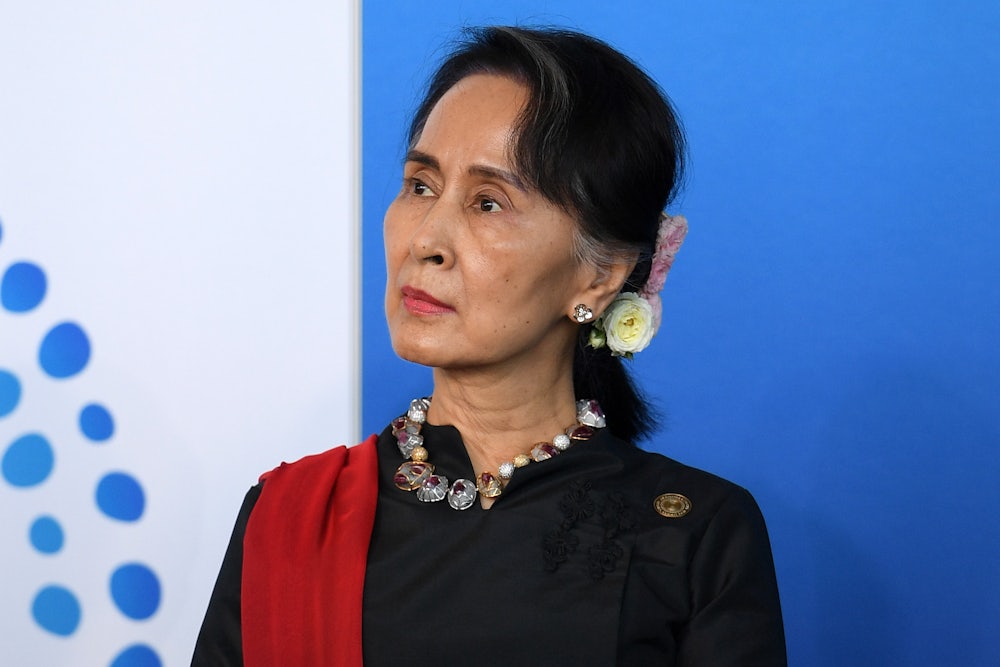Myanmar’s leader Aung San Suu Kyi, former darling of the human rights community for her years under house arrest while opposing military rule, has recently been under international pressure over her army’s alleged genocide of the Rohingya Muslims. Speaking at a World Economic Forum meeting in Vietnam on Thursday, she admitted that the situation “could have been handled better.” It was a rare admission of wrongdoing by the Nobel laureate.
She struck a more defensive tone when asked about the two Reuters journalists who’ve been jailed in Myanmar while reporting on the killings, saying that many critics had not actually read the verdict of the case. Suu Kyi said their case “had nothing to do with freedom of expression at all,” but rather was because “the court has decided that they have broken the Official Secrets Act.” The reporters from Reuters were sentenced to seven years in prison earlier this month for violating the state secrets act while they were investigating the killing of Rohingya men by the military in a village called Inn Din.
The BBC reports that the Official Secrets Act the Reuters journalists were convicted under “is so vague and sweeping it criminalises obtaining or reading any document the government deems sensitive.” There has been much international criticism regarding the verdict, including from Vice President Pence who has called for the journalists release.
In her speech Thursday, Suu Kyi again brought up a favorite theme, the rule of law, frequently used to rationalize the government’s actions against the Rohingya. Suu Kyi has repeatedly highlighted the violence carried out by armed Rohingya militants against people of other ethnic and religious groups in the Rakhine district where most the Rohingya live—an equivalence not borne out by the numbers. Médecins Sans Frontières estimated last year that at least 6,700 Rohingya had been killed in the main attacks between August 25 and September 24, 2017, with another 647,000 estimated to have fled. Estimates place the number of non-Rohingya killed in Rakhine in the past year around 50.
Last month, the U.N.’s Assistant Secretary-General for Human Rights said that the ethnic cleansing of Rohingya in Rakhine constituted a genocide and that the violence was continuing.
